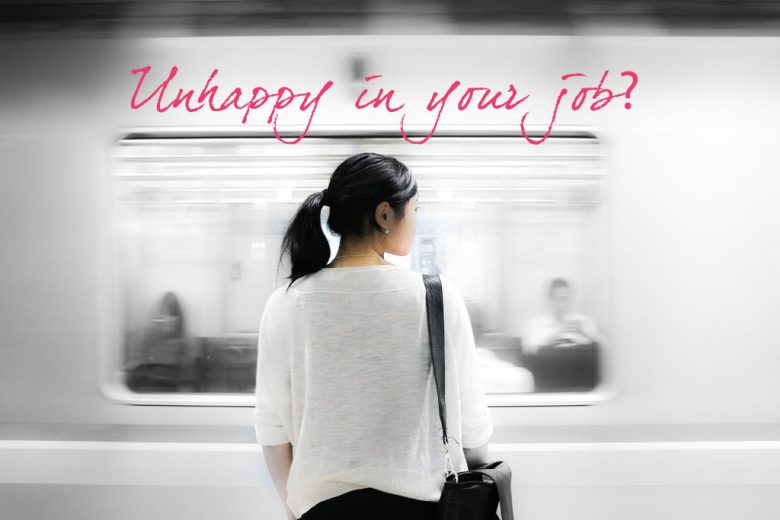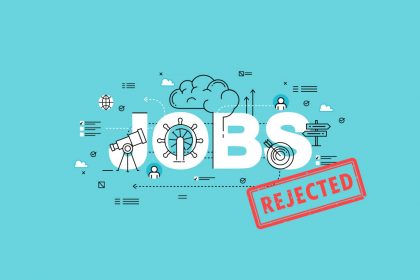10 things you need to think about before changing your job
Unhappy in your job? Considering leaving but not sure whether it’s the right decision? Read 10 things you need to think about before changing your job.
Over the past 25 years, HR consultant and founder of Amelore Ruth Cornish has helped many people make the right career decisions. Now she’s sharing her quick guide to changing your job with us.
10 things you need to think about before changing your job
So you’ve had enough of your current job and you fancy a complete change of career. Or maybe you’ve taken some time off and want to get back into the world of work. But before you make a rash decision, here are 10 things you need to consider.
1) How much money do you want (or need)?
Very few of us are blessed enough to have no money worries at all so it seems obvious, but take a proper look at your finances before you do anything.
If you need to increase your income, it will dictate the type of job and hours you need. If you want to go back to basics then look at the minimum you need to cover your outgoings, including bills and living costs. You may find you have enough to follow your dreams, even if it doesn’t pay so well.
And remember! You won’t be able to get a new mortgage whilst in a probation period or in the early days of a new business or freelancing.
2) Look at your personal life
Don’t under estimate the stress of a new job in your life. Not just the looking for it, but the need to prove yourself once you start.
If things are tough in your personal life, maybe relationship difficulties, a new baby, health problems or a bereavement, don’t take on more than you can cope with.
A new job can be as stressful as it is exciting. Equally if you need flexibility to sort something out at home, this will be harder to get during probation or in the start up phases of a new business.
3) Consider your health
Any job needs to positively support you remaining in good mental and physical health. Write a list of the things that have made you feel unwell or stressed in the past, such as commuting, working long hours, particular working environments and avoid those things in your new job.
If you know you might take more sick leave than average, remaining employed instead of going self-employed might be better for you. If you’ve had private medical insurance with your existing company and have made a claim – check out whether your pre existing condition would be covered with a new employer.
4) Look at your current work situation
‘It’s not me, it’s them.’ Sometimes the thought of a new job and leaping ship masks issues that you want to leave behind in your current employment situation but which might be coming with you anyway.
If you feel that no-one appreciates you and all the management team are exploiting you, it might be that you have some development issues that are better addressed in a known employment environment.
Get some feedback from someone you trust about your chances of thriving in a different company or environment. (We can provide career health checks and booster packages, to help you make the most of your skills, get in touch to find out more.)
5) How flexible are you?
Make another list, this time about how flexible you are going to be. Consider the following:
- Location and geographical area – how far can you travel?
- Working hours – how many days or hours can you work and when? Daytime, evening or weekends?
- Other responsibilities – who else relies on you and when do they need your time?
This doesn’t need to be as restrictive as it sounds but think about what you can and can’t do as certain ways of working might suit you better. Many a successful business was started up in the margins of the school day.
6) Choose a job to suit your personality
Have you ever had your personality profiled? If you have you know it highlights how you like to work. Other tools can identify your personal values which are core to you feeling happy or not at work.
Working in a way you prefer means you will perform well and this coupled with a personality that is aligned with the industry or company you work for is pretty significant. It’s an area that some people can under estimate although everyone has heard of personality clashes as being the cause of big falls outs and unhappiness at work.
7) Think about what motivates you
Depending on the stage of career you are at, your motivation for changing jobs will vary wildly. There will be some people reading this that would consider just about anything for better perks, more money and progression. Others absolutely want a job that gives them a good work/life balance.
The gloss of a new job will soon wear off if the job you have gone for doesn’t lead to something you ultimately aspire to in your life. Does your planned change fit in with your overall master plan? Don’t go for something that will ultimately make you unhappy or leave you feeling unfulfilled.
8) Consider your ability and your limitations
We all have natural abilities and strengths and no amount of development or training or pushing will truly change that. It is much better to play to your strengths than to set unrealistic goals.
If you are unsure about what you should be aiming for, ask your current boss or someone whom you respect and admire for their opinion. It might be that you are in your comfort zone and a new job and challenge will see you flourish. Talk to us about a career booster.
9) What resources do you have?
So what resources do you have or can you get to help you get that new job or make that business fly? This goes way beyond your career to date, your qualifications and your skills although they all have a place.
The most successful people are well connected and well informed. They have identified what they want to do, spoken to people already doing it and have focussed hard on getting it. Use the wealth of information out there on the internet and don’t be afraid to ask people you admire, for their advice.
10) Manage your own expectations
The early days of a new job can be difficult, when we struggle to manage our own expectations of what a career change can bring. Be prepared to experience doubt, regret, panic and even insecurity in those early days. Your new life might not seem the best choice at first, but persevere and stick with it.
It can take between three and six months to find your feet in any new venture, but if you’ve taken all the right steps to make that decision, chances are it’s the right one. Stay positive and you will fly.
Ruth Cornish is Managing Director of Amelore, providing integrated HR for ambitious people and companies. Find out more on their website.










